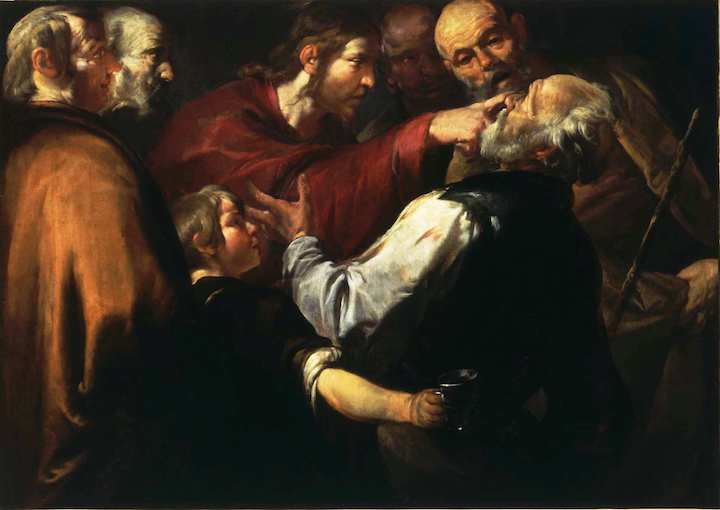- Feb 5, 2002
- 166,551
- 56,198
- Country
- United States
- Faith
- Catholic
- Marital Status
- Married
- Politics
- US-Others
Note: Two articles by Cardinal Robert McElroy of San Diego (here
Cardinal McElroy on ‘radical inclusion’ for L.G.B.T. people, women and others in the Catholic Church and here) How we become a ‘Field Hospital’ Church: Cardinal McIlroy asks some important questions
have caused a major stir in the American Church, even leading another American bishop, Thomas J. Paprocki of Springfield, Illinois, to “imagine a heretical cardinal” (here) Imagining a Heretical Cardinal | Thomas J. Paprocki quoting from, without naming, McElroy. Much further commentary has occurred, and much more is needed, which is why we publish here two columns that we think help to illuminate what’s at stake in the Synodal Process currently underway and the future of the worldwide Catholic Church. – Robert Royal
John M. Grondelski
Among Cardinal Robert McElroy’s seemingly multiple objections to Catholic teaching is its sexual morality. For McElroy, besides being unwelcoming and off-putting, Catholic sexual ethics distorts Christian moral life as well as makes assumptions that he rejects, by misusing in this context the old category parvitas materiae (“lack of serious matter”).
In plain English, he rejects the notion that sins against the Sixth Commandment by their nature are mortal sins.
In plain English, Cardinal Robert McElroy is wrong.
It’s hard to know where to start with this somewhat complex point of moral theology, given that all the background and merits of the issue cannot fit in the brief space of a column. But one could start with the structure of a moral act. Moral acts have moral value independently of their agent’s intentions. That’s what we mean when we say an act is “intrinsically evil” or even “intrinsically disordered.” It means there is a real moral order prior to action.
One could claim that sexual sins – in comparison to the foundational sin of pride, for example – are not among the “most serious.” But, as the Catholic philosopher Edward Feser has aptly noted, not being among the most serious sins doesn’t make them not serious. And why this allergy to using the quite useful term “mortal sin?”
Continued below.

 www.thecatholicthing.org
www.thecatholicthing.org
Cardinal McElroy on ‘radical inclusion’ for L.G.B.T. people, women and others in the Catholic Church and here) How we become a ‘Field Hospital’ Church: Cardinal McIlroy asks some important questions
have caused a major stir in the American Church, even leading another American bishop, Thomas J. Paprocki of Springfield, Illinois, to “imagine a heretical cardinal” (here) Imagining a Heretical Cardinal | Thomas J. Paprocki quoting from, without naming, McElroy. Much further commentary has occurred, and much more is needed, which is why we publish here two columns that we think help to illuminate what’s at stake in the Synodal Process currently underway and the future of the worldwide Catholic Church. – Robert Royal
John M. Grondelski
Among Cardinal Robert McElroy’s seemingly multiple objections to Catholic teaching is its sexual morality. For McElroy, besides being unwelcoming and off-putting, Catholic sexual ethics distorts Christian moral life as well as makes assumptions that he rejects, by misusing in this context the old category parvitas materiae (“lack of serious matter”).
In plain English, he rejects the notion that sins against the Sixth Commandment by their nature are mortal sins.
In plain English, Cardinal Robert McElroy is wrong.
It’s hard to know where to start with this somewhat complex point of moral theology, given that all the background and merits of the issue cannot fit in the brief space of a column. But one could start with the structure of a moral act. Moral acts have moral value independently of their agent’s intentions. That’s what we mean when we say an act is “intrinsically evil” or even “intrinsically disordered.” It means there is a real moral order prior to action.
One could claim that sexual sins – in comparison to the foundational sin of pride, for example – are not among the “most serious.” But, as the Catholic philosopher Edward Feser has aptly noted, not being among the most serious sins doesn’t make them not serious. And why this allergy to using the quite useful term “mortal sin?”
Continued below.

Two Commentaries on the McElroy Controversies - The Catholic Thing
John Grondelski and Leila Marie Lawler: Two on conscience, which has rights and duties, and is among the things we cannot not know.
